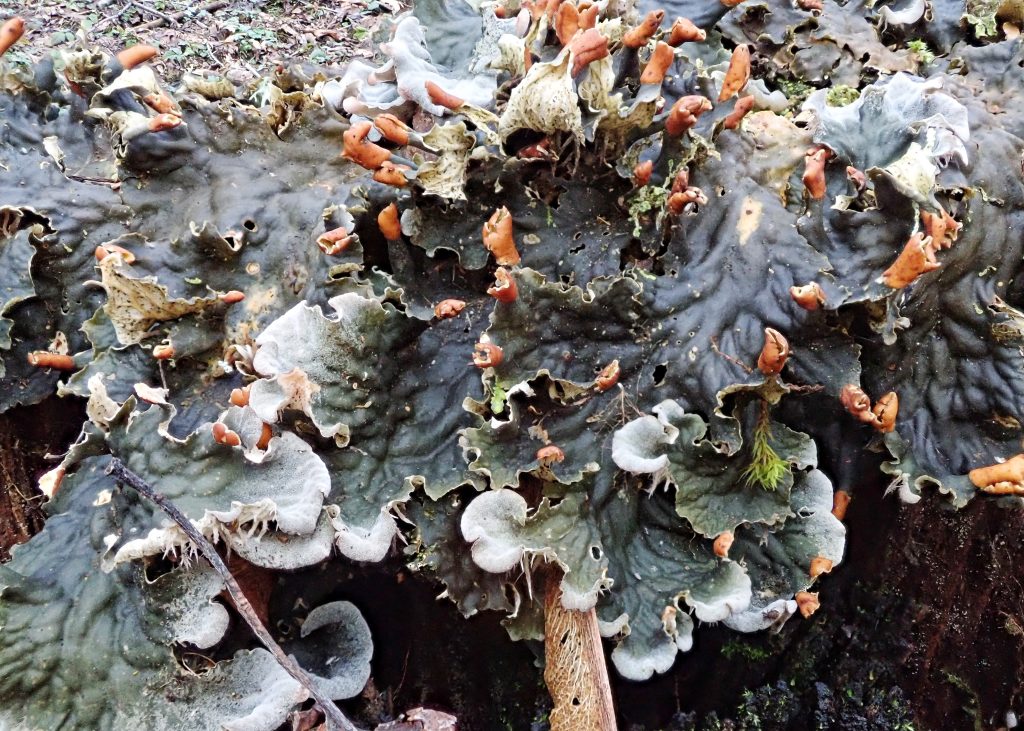
It always makes me happy to encounter a Peltigera sp. in my wandering, but I have never identified one in the field without a hand lens and a key. This is because I can never remember which of the large suite of characteristics goes with which of the large number of lichens in this genus.
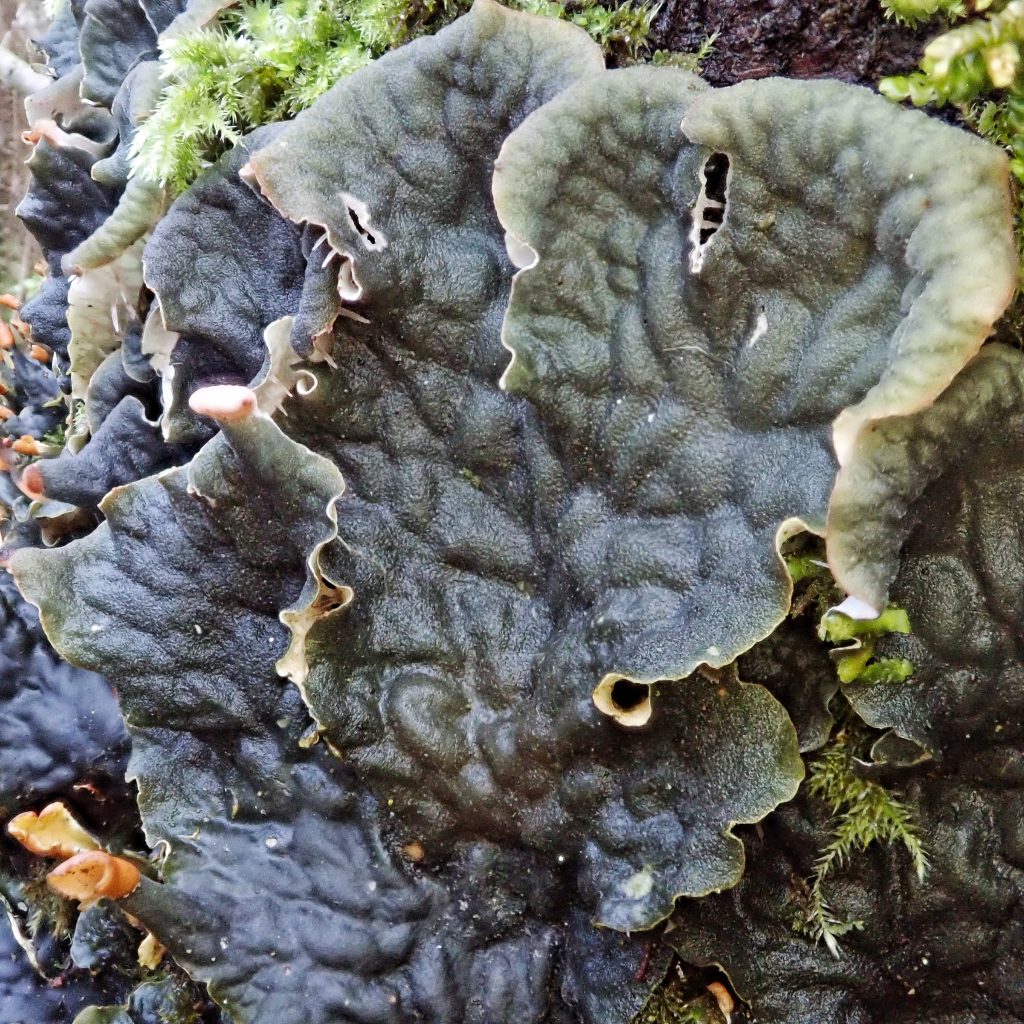
An incomplete list of traits which differentiate these lichens would include- surface color; surface hairy or glabrous; surface smooth or slightly ridged; ventral veins distinct, moderate, or lacking, and are they hairy or smooth; rhizines long or short, branched or unbranched, singular or in clumps; does it have lobules, soredia, isidia, or apothecia, and what is their form and color; etc., etc., etc. This is true for most lichens, but the fact that there are at least 16 Peltigera spp. in our region makes it particularly problematic here.
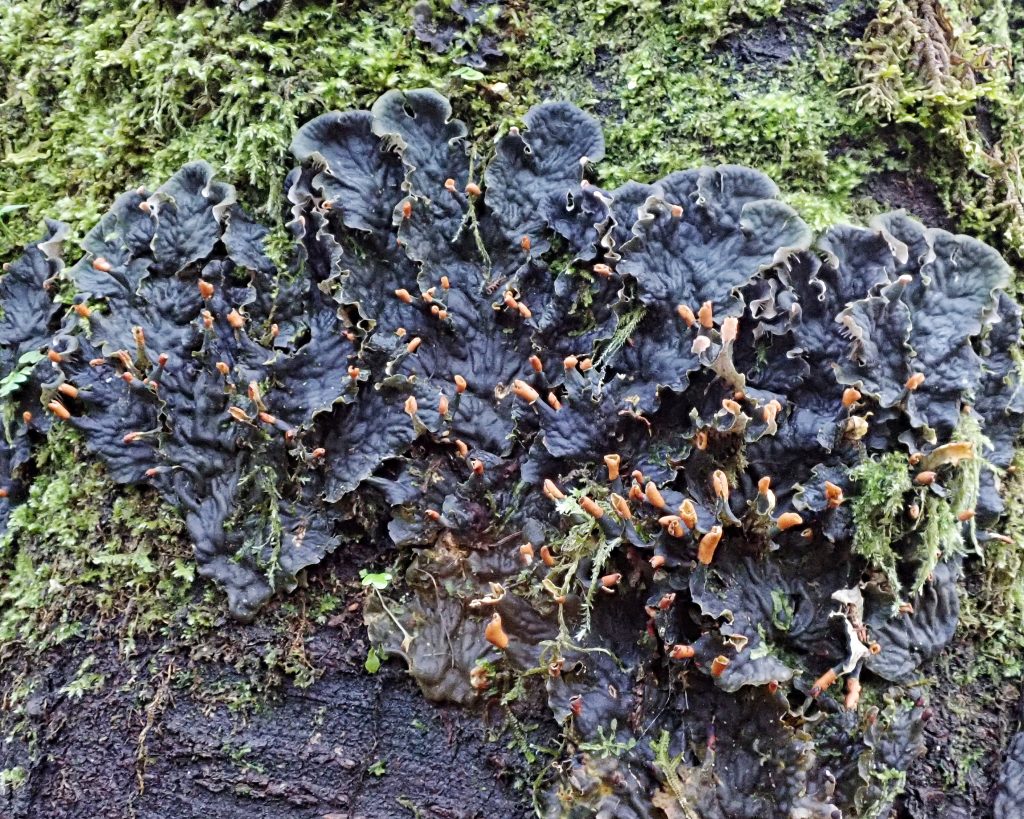
Having said that, in the case of Peltigera membranacea I am usually just ruling out other species when I finally get a sample to magnification and a key. This is because it is common enough (McCune/Geiser say it’s the most common Peltigera west of the Cascades) that I have identified it several times, and a certain gestalt for this lichen (wide, downturned lobes with hairy, light grey distal portions, and a felted ventral surface), aided by photographs, has embedded in my mind.
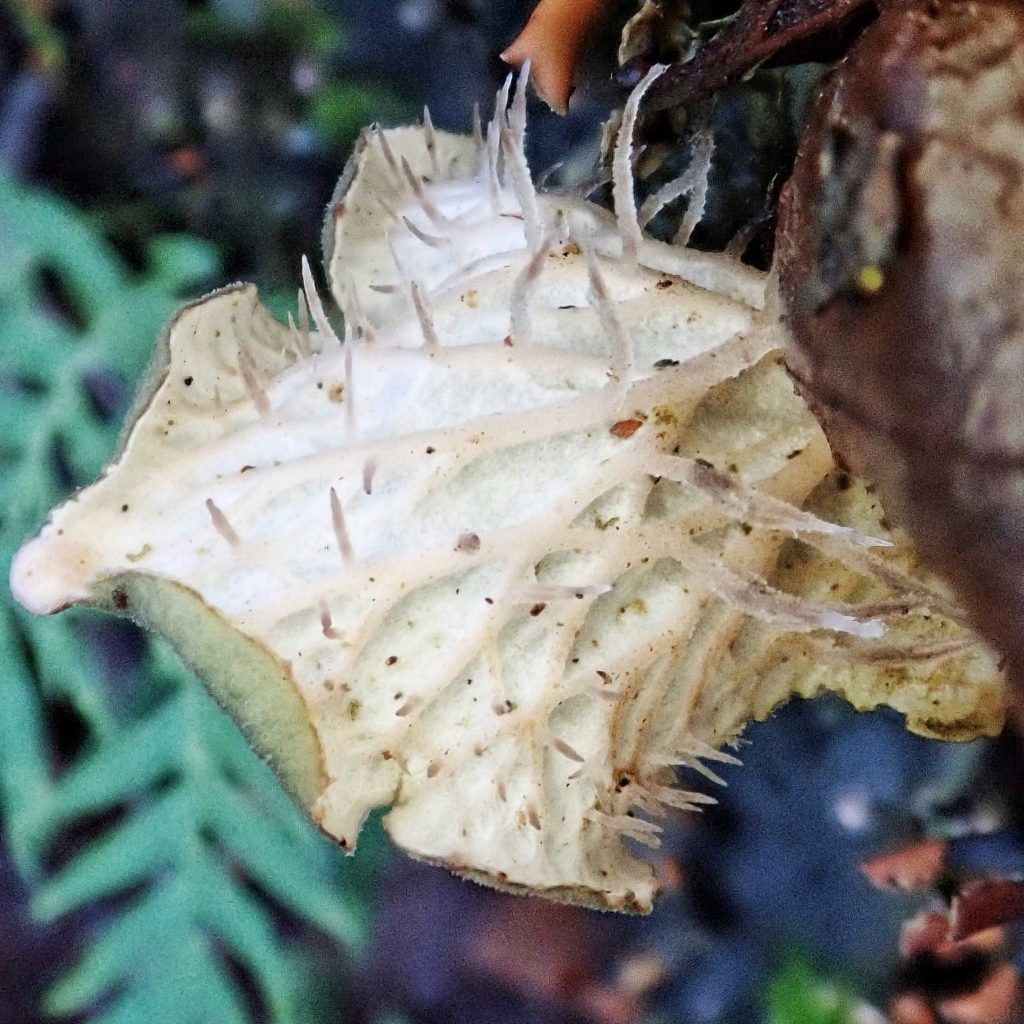
I’m always particularly engaged by their apothecia, those narrow, dark lobes with a brown projection. This is a common form in this genus, and even before I knew anything about lichens I had guessed it might be related to reproduction. But it is unlike any other reproductive structure with which I’m familiar. I look closely at it, and it seems so amorphous and unsymmetrical that it doesn’t seem to have the organization required to propagate the species. But there is another patch, and another one, so clearly it accomplishes its task adequately, without any need of my understanding.
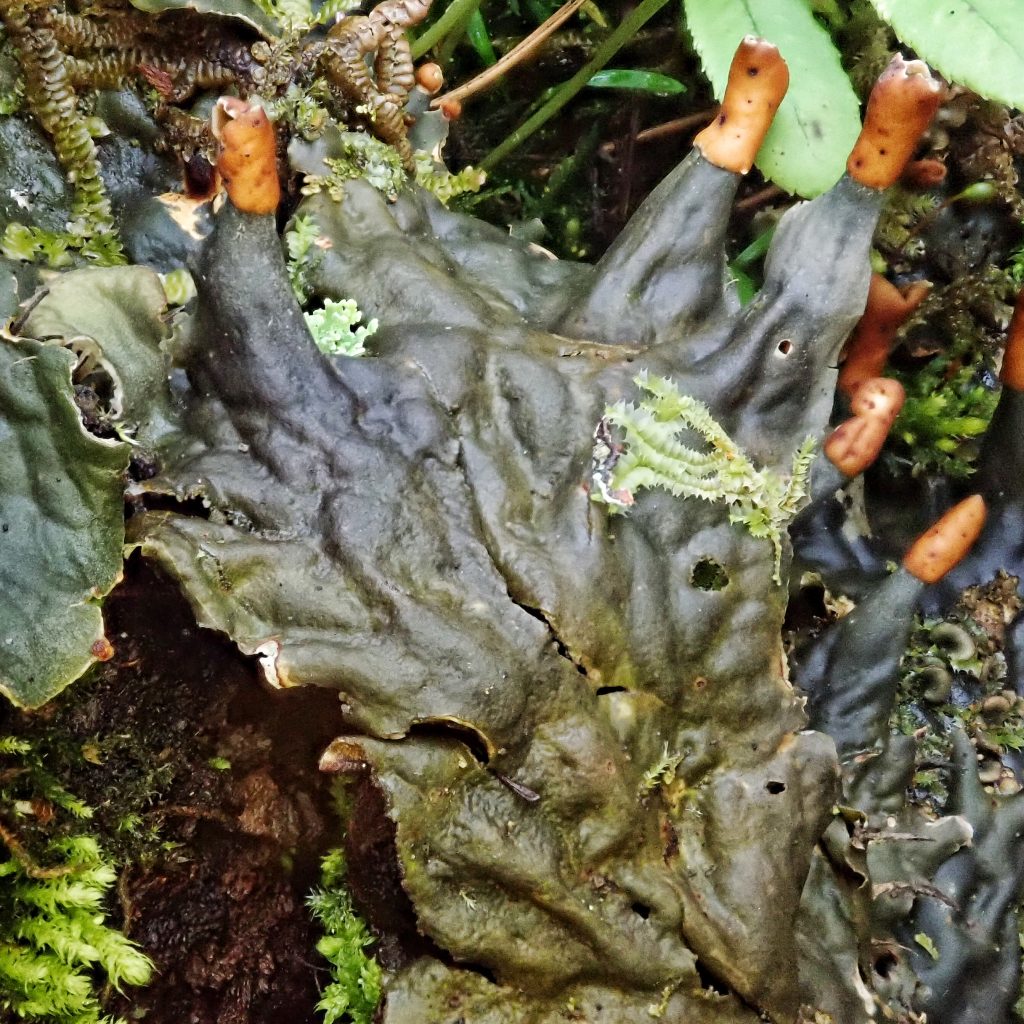
A note about terminology- it has proved to be beyond my scope to provide a link to a definition of every term that may be unfamiliar to any of my readers. But in every one of my lichen posts I do provide a link to ‘Common Macrolichens of the Pacific Northwest’. It is usually the first link, and while it takes one to a page specific to that lichen, on that page all of the characteristics are also links to a definition of that characteristic.
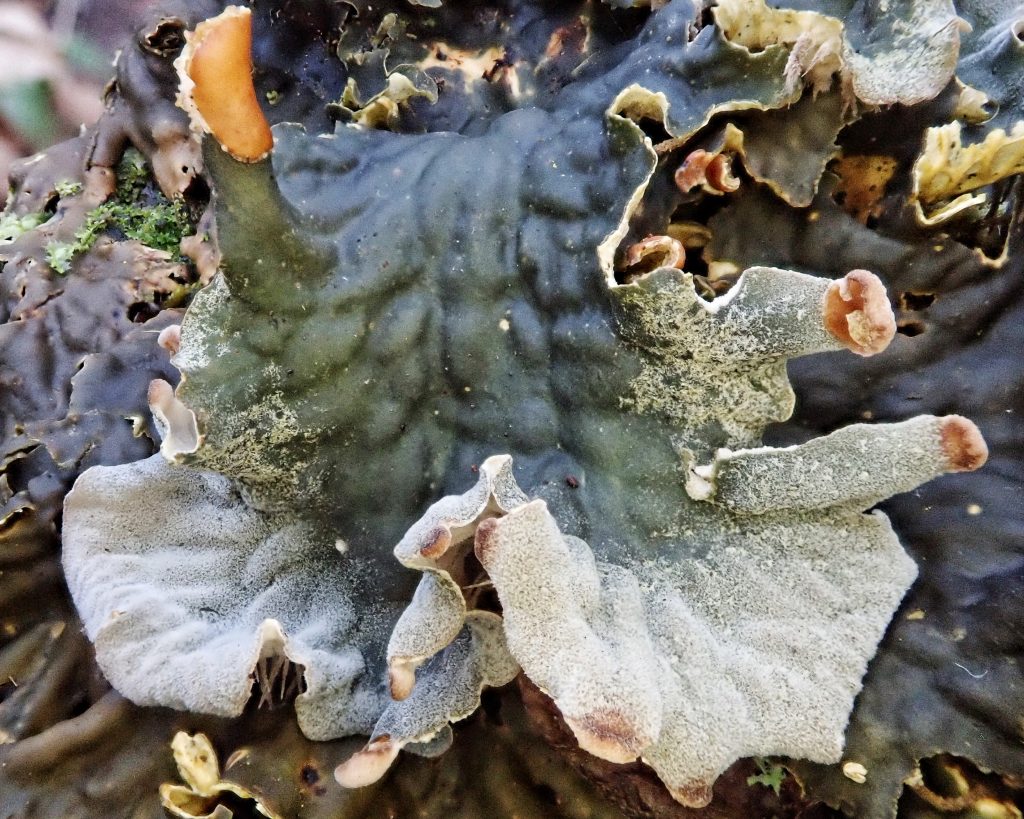
Description-Large, pale to dark gray, tan, or brown, foliose thallus, often appressed; usually tomentose (tiny, densely packed hairs), at least on the outer lobes; lobes rounded, downturned, averaging 30 mm in width, with brown apothecia at the margins; soredia and isidia lacking; ventral surface tomentose, whitish on the margins, darkening toward the center, with distinctive narrow tomentose veins; rhizines up to 10mm long, usually unbranched, also tomentose.
Similar species– Peltigera praetextata often has lobules, hairless veins, and upturned lobe margins; P. canina has bushy clumps of rhizines, and hairless veins.
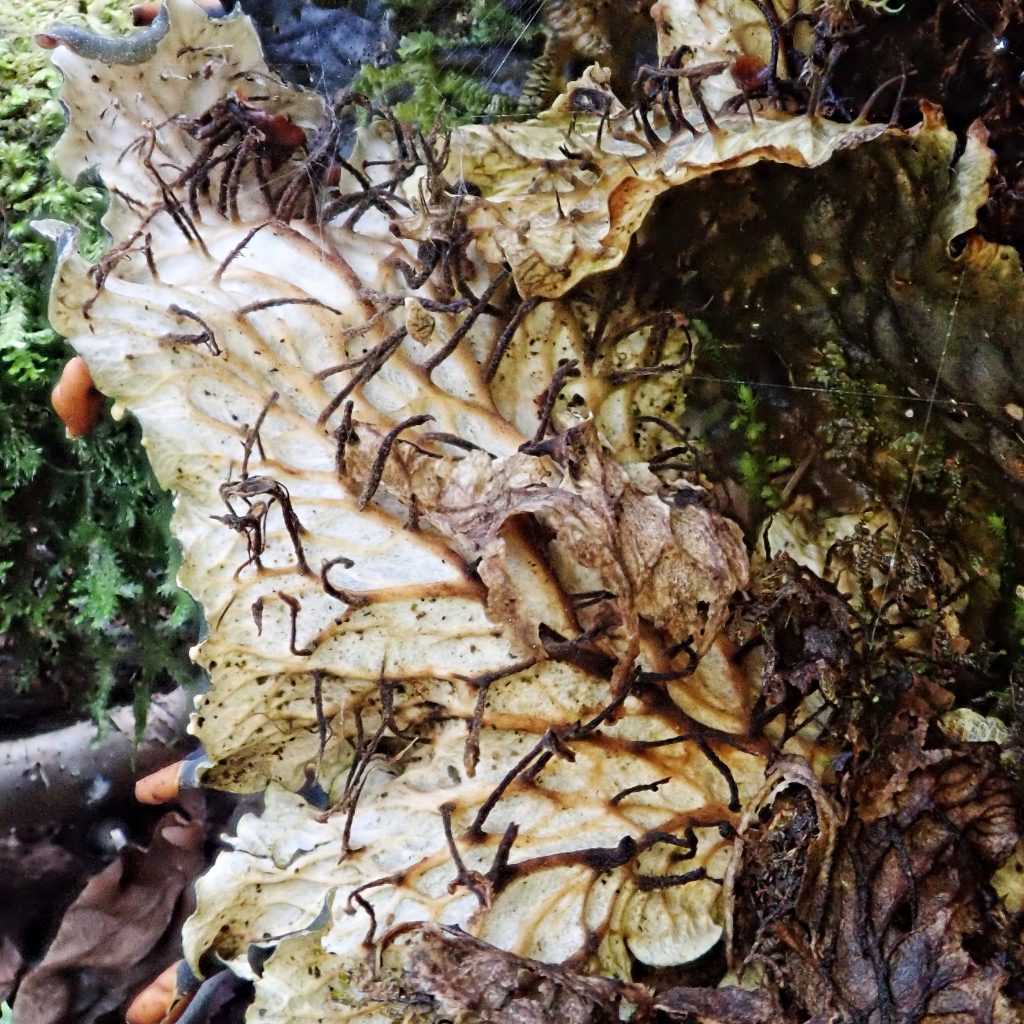
Habitat– Found on soil, moss, soil or moss over rocks, and rotting logs in mesic forests at low to mid elevations.
Range-West of the Cascades, ne Washington, n Idaho, nw Montana.
Eaten by– Apparently it was used by the Kwakiutl tribe in BC as a love charm, “…but it is unclear how (or if) it worked.”(Irwin Brodo)
Etymology of names– Peltigera translates from Latin as ‘shield bearer’, and refers to the shape of the thalli in many members of this genus. The specific epithet membranacea refers to the fact that this is a very thin Peltigera, thus membranous.
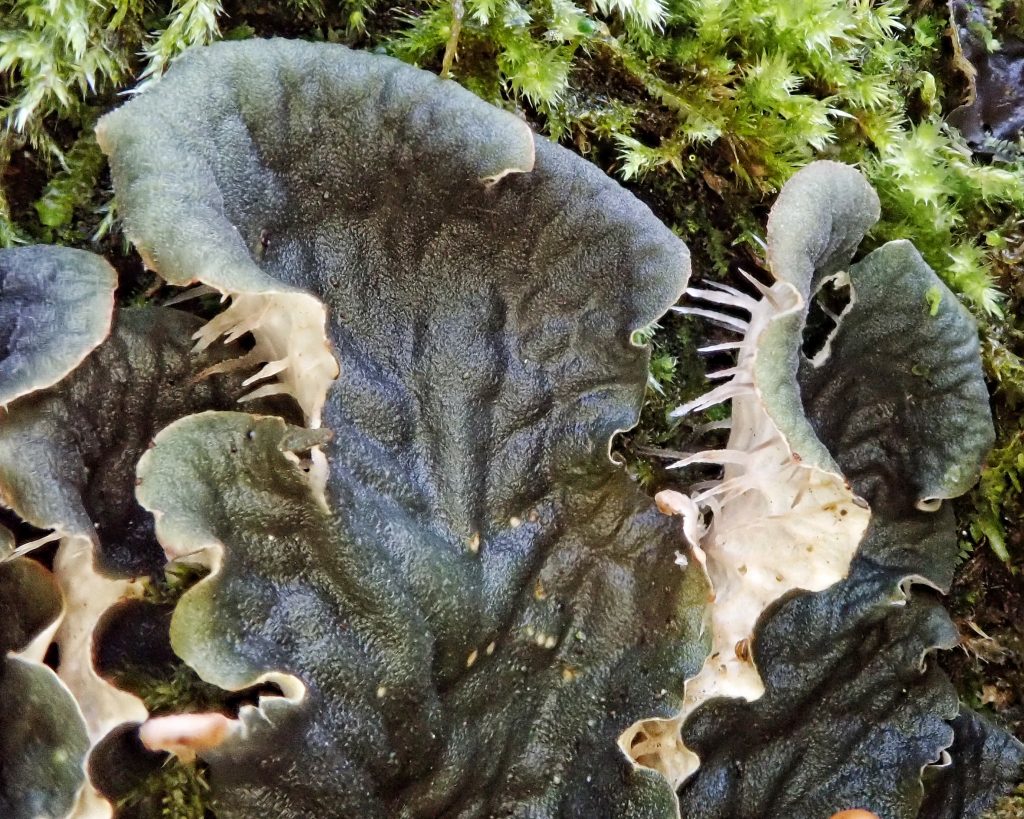
Peltigera membranacea – Common Macrolichens of the Pacific Northwest
https://lichenportal.org/cnalh/taxa/index.php?taxon=55984&clid=1135
http://www.lichens.lastdragon.org/Peltigera_membranacea.html
https://en.m.wikipedia.org/wiki/Peltigera_membranacea
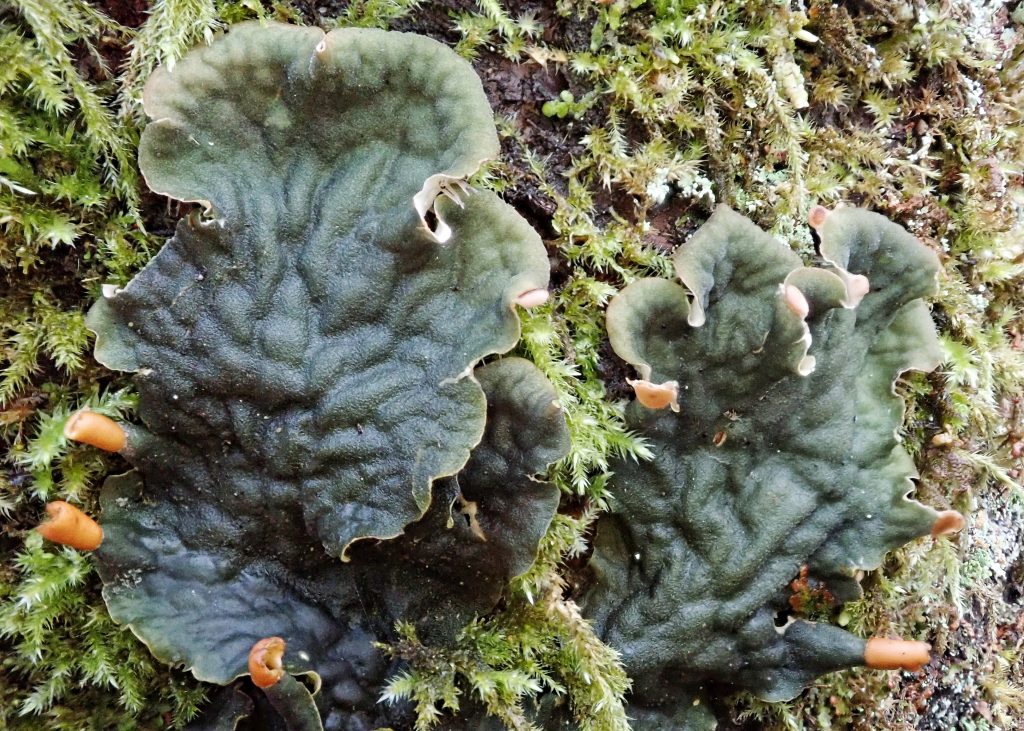
Just astounding how many different lichens there are and how carefully you have to look to differentiate them!
Thanks for all your comments, Allison. I appreciate all of your dedicated and careful reading!
How do you get rid of it
Why would you want to? Lichens are harmless!